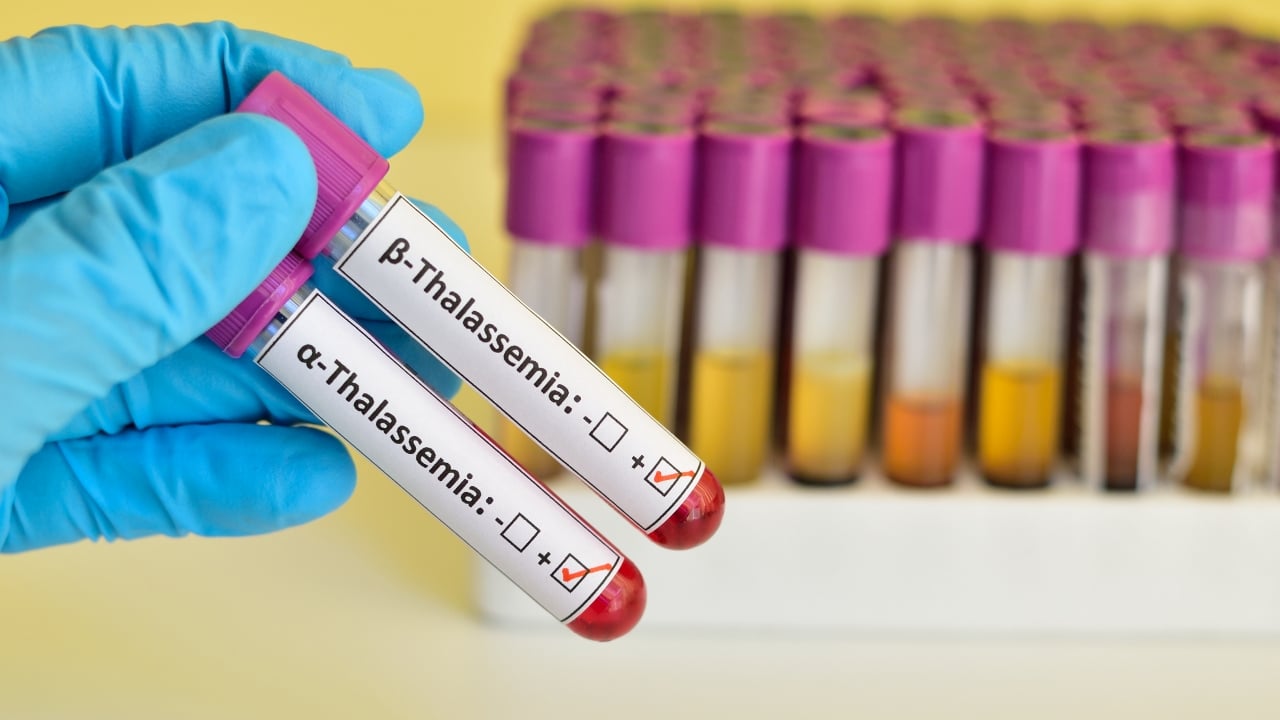With trial win for oral thalassemia drug, Agios charts broader path than gene therapy rivals
2024-01-03
临床结果临床3期临床2期上市批准基因疗法

Preview
来源: FiercePharma
Agios is waiting for mid-2024 readout from a separate phase 3 trial to file for an FDA approval covering all forms of thalassemia.
Gene therapies have been approved for certain patients with beta thalassemia. After a successful phase 3 readout, Agios hopes it can reach a unique subgroup and eventually all patients.
Specifically, 42.3% of patients in the mitapivat arm achieved a hemoglobin response, as defined by an increase of at least 1g/dL in average hemoglobin concentrations during week 12 through week 24 compared with baseline. Only 1.6% of patients in the control arm achieved that level of response.
The positive data showed mitapivat’s potential to become the first oral therapy approved for nontransfusion-dependent thalassemia, Agios CEO Brian Goff said during an investor call Wednesday. The drug, a pyruvate kinase activator, is currently approved under the brand name Pyrukynd to treat anemia in adults with another type of rare blood cell disorder called pyruvate kinase deficiency.
Agios won’t file for FDA approval just yet, Agios’ R&D head Sarah Gheuens, M.D., Ph.D., told investors on the call. The company will combine results from the ENERGIZE-T trial in transfusion-dependent patients to seek a broad indication in one filing. Agios now expects that second phase 3 trial to read out in the middle of this year, which could translate into a potential approval for all forms of thalassemia next year.
Gheuens didn’t directly answer a question about whether Agios can file for non-dependent patients alone if ENERGIZE-T comes back negative. Agios will take a “totality of the data” approach and will assess its options, Gheuens said, stressing that the benefit-risk profile for the medicine was clear in the current ENERGIZE study.
Reaching the nontransfusion-dependent patients would give Pyrukynd an edge in an increasingly competitive field. Bluebird bio’s gene therapy Zynteglo is indicated for transfusion-dependent patients with beta thalassemia, and Vertex and CRISPR Therapeutics’ Casgevy is awaiting an FDA decision on the same use.
By Agios’ calculations, about 8,000 thalassemia patients live in the U.S. across the alpha and beta subtypes, and patients who don’t rely on transfusion make up more than half of the population. Although the nondependent patients represent a large group, the urgency to actively treat them might appear lower because they don’t require regular transfusions for survival.
But that’s not the case, Jeremie Estepp, M.D., a medical director at Agios responsible for the Pyrukynd program, explained on the call. According to guidelines from the Thalassaemia International Federation, nontrasfusion-dependent patients with hemoglobin levels of less than 10g/dL on average are at a higher risk of developing the long-term complications of organ damage, reduced quality of life and premature death.
“So I think that the academic field is really transitioning toward the idea that we really need to be quite a bit more aggressive with respect to treating these patients,” Estepp said.
In addition, how quickly the ENERGIZE trial enrolled its participants also speaks to a sense of urgency in the thalassemia community, he added.
For now, Agios didn’t share subgroup data divided by alpha and beta forms or by transfusion dependence. For the two different genotypes, Gheuens said no one subgroup drove the overall efficacy results.
With the positive ENERGIZE data, Agios is also actively looking to identify partners for commercializing Pyrukynd across the globe, Gheuens said, and the company will be moving “as quickly as possible.” As Gheuens noted, about 70,000 thalassemia patients live in the Gulf region.
Outside of thalassemia, Agios is testing Pyrukynd in sickle cell disease, which is a much larger but more crowded indication. The Massachusetts biotech recently reported positive mid-stage results from the phase 2 portion of the RISE UP trial.
With the phase 3 portion already initiated, Agios is targeting a potential U.S. approval there in 2026.
更多内容,请访问原始网站
文中所述内容并不反映新药情报库及其所属公司任何意见及观点,如有版权侵扰或错误之处,请及时联系我们,我们会在24小时内配合处理。
靶点
-来和芽仔聊天吧
立即开始免费试用!
智慧芽新药情报库是智慧芽专为生命科学人士构建的基于AI的创新药情报平台,助您全方位提升您的研发与决策效率。
立即开始数据试用!
智慧芽新药库数据也通过智慧芽数据服务平台,以API或者数据包形式对外开放,助您更加充分利用智慧芽新药情报信息。





